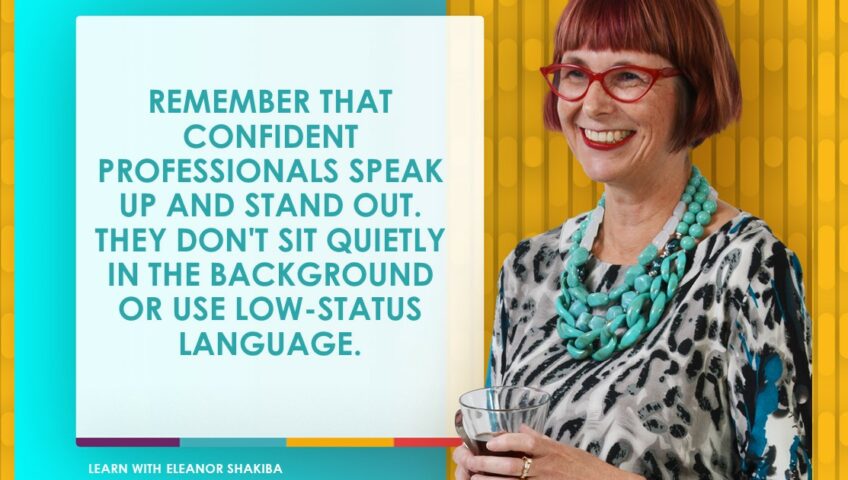Hey there, frustrated professional! Are you sick of being passed over for promotion? Despite all that hard work and the long hours you put in every week. Why is that the people who talk themselves up are the ones climbing the ladder, while you’re the one doing all the real work?
Well, maybe it’s not so much what those people say, but how they say it. You see, some of us naturally use ‘high status’ language patterns. Others – maybe you – were taught to speak like a low-status team member. Sadly, everyday speech habits can keep you stuck in lower management. That’s particularly true if you’re female. Sigh.
If this sounds familiar, don’t fret. The good news is that three small changes to the way you speak can unblock your career faster than a bottle of Draino unblocks that stinky kitchen sink. Firstly, stop speaking about operational details. This is not what senior folks focus on. To sound like management material, you need to use high-level language and talk about the future. Don’t talk about how many widgets were produced last week. Instead, explain how you boosted productivity by 10%. Use words like ‘strategic’, ‘long-term’ and ‘future-proof’. This shows you understand the big picture – a valuable attribute in any leader.
Secondly, stop asking your boss for instructions. People who get promoted think for themselves. If you’re not sure what to do, offer your boss alternatives and make recommendations. Keep it quick, too. This will communicate that you’re someone who can solve problems and make decisions. In other words, a great candidate for that vacant leadership job.
Free e-book and video tips.Get your copy today!
|
|
Finally, always be brief but clear when responding to questions. Nobody wants long rambling explanations or stories. Ditch the details, history and descriptions of your problems. Senior people just need simple yes/no answers or short summaries. Pause and think about why the question has been asked. Then get straight to the point. Being succinct shows that you’re smart and intuitive – which makes you stand out from your colleagues, I bet.
And please remember that confident professionals speak up and stand out. They don’t sit quietly in the background or use low-status language. So, with a few tweaks to your communication, you can be a leader who makes a difference. If you’d like help powering up your communication habits, get in touch. I’d love to give you a few more tips.
This article was created by Eleanor Shakiba
Eleanor is a leadership trainer and success coach. Her mission is inspiring talented people to become leaders who make a difference. Since discovering her passion for training and development, Eleanor has trained more than 60,000 people. She delivers face-to-face workshops for corporates, online masterclasses for leaders and Positive Psychology retreats for trainers, HR practitioners and leaders.

